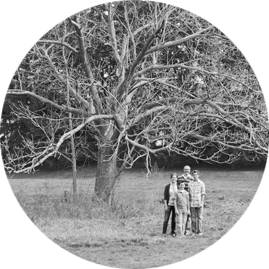"The disciples had forgotten to bring bread, except for one loaf they had with them in the boat." Mark 8:14
Let me go ahead and get this out of the way so I can get on to making some reasonably spiritual points about the above passage: I just don't ever want to hear the word "loaf" associated with food for any reason.
There are a number of reasons for this (as you probably can imagine). I can handle hearing the phrase "a loaf of bread", but when loaf starts making its way into other things I start to get a bit squeemish (Meat Loaf, Cheese Loaf, Sausage Loaf, Pimento Loaf, etc.). Since I am already talking about stupid stuff, let me go ahead and offer a few other words that never have to enter a conversation about food: congealed, chutney, casserole, and ghoulash would be among them. Yuk. Saying them makes me nauseous.
Anyway...
Jesus is in a boat one day with his closest followers. He has just recently fed four thousand men (not including women and children) out of just a few pieces of bread and fish. It was miraculous. And it wasn't even the first time - some time before Jesus had done the same thing with five thousand men. His disciples got to see it all.
But following this second great feeding, Jesus is having a conversation with the self-righteous religious leaders of his day (called "Pharisees"). They wanted him to give them a sign from heaven - Jesus said no.
So, now on a boat with his closest followers, he tells them to beware of the "yeast" of the Pharisees - essentially telling them that the wrong thinking the Pharisees have about God and His Messiah can seem small but can penetrate the whole of their thinking if they aren't careful (just like a little yeast leavens the whole dough).
As happens from time to time in the reality show life of the disciples, they miss the point. They think Jesus is talking to them about "yeast" because they didn't remember to bring any additional bread with them for the trip - all they have is one loaf. So, they argue amongst themselves as to whose responsibility it was to get the additonal bread ("hey Thomas, if you would have stopped shoving fish down your pie hole for a minute maybe you would have remembered to get some bread for our trip" followed by "Oh yeah? I was doing you a favor - you need some additional carbs like you need a hole in the head"). Jesus, hearing their conversation, basically says "Do you not get it? You think I am talking about the need to bring bread? Haven't you seen me feed 5,000 men followed later by feeding 4,000 men and we had plenty leftover? Do you think I am worried about you bringing more bread?"
He basically told them they were blind. Then, when they got out of the boat, Jesus (as he so often did) illustrated in a very earthy way what he was trying to teach them. He meets a blind man and heals him of his blindness so that he can see clearly. After that, Jesus is walking with his gang, and he asks them who people say He is. "John the Baptist", says one. "I have heard people call you Elijah" says another. "Other people are calling you one of the prophets" the last one calls out. So, Jesus asks them a pointed question: "Who do you say I am?" Peter, the spokesman of the group, answered. "You are the Christ."
I think that is the thing He wanted them to understand all along. It wasn't so much about signs, though they have a purpose. It is about the One to whom the signs point. When he was with them in the boat, they thought He was worried about not having enough bread. What He wanted them to realize is that the One Loaf they had in the boat was enough because, I think, it was Him. He was their Messiah, their sufficiency, their Bread of Life. It took them a while to see it.
And it takes us a while too. Sometimes we think we need more than Jesus. We forget that He is our sufficiency. He is all we need. But in the words of C.S. Lewis, "The man who has God and everything else has no more than the man who has God only."
The One Loaf - our Bread of Life - is sufficient for us.
